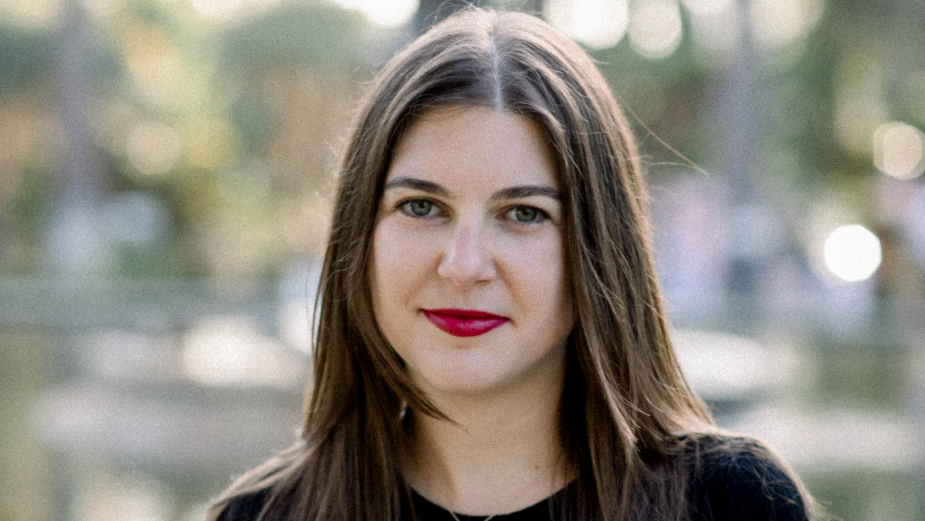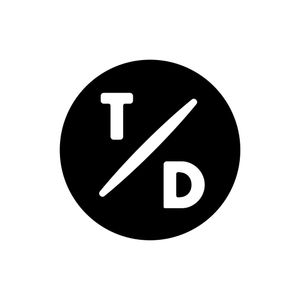
Finely Sliced: Why Editing Is All about the Emotion with Cami Starkman

A lifelong Angeleno, Cami Starkman began playing with experimental films as a student attending Crossroads School. In 2012, she graduated from the American Film Institute with an MFA in film editing. Since then, she has worked consistently as an editor, cutting multiple television documentaries (one Emmy-winning and one Emmy-nominated), numerous shorts and feature films; as well as a vast array of commercials, web content, and music videos. She is known for her artistic eye and bold choices.
LBB> The first cut is the deepest: how do you like to start an editing project?
Cami> I almost always begin by building a compelling sound bed. I’ll lay down the track or temp music then add markers to shifts in the music to visually indicate where large emotional changes in the visuals will land. If it is a piece with a voiceover, I will lay that in next to create an audible guide for my story. Once that is done, I’ll watch all the footage and make selections keeping this audible structure in mind. Often, the footage excites me so much that I’ll start cutting moments into the main timeline while I’m pulling my selects.
LBB> Non-editors often think of editing just in technical terms but it’s integral to the emotion and mood of a film. How did you develop that side of your craft?
Cami> For me, editing is all about the emotion. I’m not much of a technical person by nature but learning the tools as the art of editing was so exciting to me. When I’m editing, I truly feel like I’m painting or sculpting - it’s a completely artistic process for me. I try to only select moments that give me a visceral reaction, and while I’m putting them together I try to amplify that gut reaction, so really my whole process is about building an emotion or multiple emotions.
LBB> How important is an understanding of story and the mechanics of story?
Cami> Understanding the story is incredibly important. If you don’t have a solid grasp of the story before beginning a cut, you risk failing to hit the beats that the director / writer / client have in mind for their spot. Thus, I always read the script or board multiple times before starting, and also keep it open right next to me while I’m cutting, constantly checking to make sure I’m hitting all the story beats.
LBB> Rhythm and a sense of musicality seem to be intrinsic to good editing (even when it’s a film without actual music) – how do you think about the rhythm side of editing, how do you feel out the beats of a scene or a spot? And do you like to cut to music?
Cami> I got my start in the music video world, so music really is everything to me as I know that a good song is actually all you need to drive the visuals along. Cutting to the beat gives the piece an intrinsic and specific pace. Therefore, even if it’s a piece without music, sometimes I’ll actually lay down a song I feel matches well with the visuals, cut to that beat, and remove it once I have a structure.
LBB> Tell us about a recent editing project that involved some interesting creative challenges.
Cami> I recently cut a music video that was shot last minute without a treatment. It was shot over one night across LA - guerrilla style. I had to strictly rely on juxtaposing individual, brief moments together in a way that made them exciting and visceral, while also creating a structure that didn’t reveal everything too quickly. Montage in its truest form. These are my favourite type of pieces to cut because the really speak to the power of editing and that it doesn’t just have to be a “paint by numbers” experience.
LBB> In the US we know that editors are much more heavily involved across the post production process than in Europe - what’s your favourite part of that side of the job?
Cami> The communication aspect of post is not only essential but fun for me. I like to work alongside my post producer in terms of keeping everyone up to date and everything moving along. I don’t ever see myself as working alone on an editing island but part of a whole team getting the piece delivered.
LBB> What’s harder to cut around – too much material or not enough? (And why?)
Cami> Not enough is always harder as you may find yourself with holes to fill. I’ve had instances where you completely run out and you end up having to turn to stock footage or repeat footage and manipulate it so that it doesn’t look like a repeat. That’s always tricker to navigate than having to watch tons of footage and make choices between takes.
LBB> Which commercial projects are you proudest of and why?
Cami> I am proudest of the ‘Japan Elevated’ campaign directed by Philippa Price. The visuals are so ethereal and out of the box - there is truly nothing else like it out there, which is so rare these days. I love working with footage that feels like a dream and this campaign was the embodiment of that. I am also proud of the ‘Face Anything’ campaign for Olay, spearheaded by the Badger Agency. This campaign had such an important message of empowering women, young girls especially, and driving home that they have just as strong a voice in STEM-focused careers as men do.
LBB> There are so many different platforms for film content now, and even in advertising something can last anything from a few seconds to a couple of hours. As an editor, are you seeing a change in the kind of projects you’re getting from brands and agencies?
Cami> Yes, just recently I worked on a spot for Hilton that was a whole concert by Brandi Carlile, performed in one of their hotel rooms. I thought this was a genius idea on the agency’s part to get music fans to notice the Hilton brand, and probably something that could only work in this age of social media and linking from TikTok, Instagram to Youtube. It all seemed very organic and personal.
LBB> Who are your editing heroes and why? What films or spots epitomise good editing for you?
Cami> Don Cambern is definitely one of my editing heroes. He cut ‘Easy Rider’ (amongst many other legendary films) and was actually one of my professors in film school at AFI. He passed away this year, unfortunately, but he was an all around badass and always encouraged us to make the most unexpected and bold choices, an outlook which I always carry with me to this day.
LBB> How does editing in the commercial world differ from the film world and TV world?
Cami> I’ve only cut a few documentaries for TV, but in my experience in the commercial world there are a lot more hurdles to go through to get something approved. In TV, it’s the director, then the network, while in commercials it’s the director, then agency, then client after client after client, depending on the brand.
LBB> Have you noticed any trends or changes in commercial editing over recent years?
Cami> I’ve noticed a trend towards the shortest cut downs imaginable, obviously a direct result of social media.













